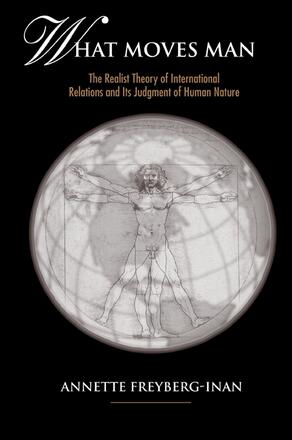
What Moves Man
The Realist Theory of International Relations and Its Judgment of Human Nature
Alternative formats available from:
A critical look at the image of human nature that underlies the realist theory of international relations.
Description
The realist theory of international relations is based on a particularly gloomy set of assumptions about universal human motives. Believing people to be essentially asocial, selfish, and untrustworthy, realism counsels a politics of distrust and competition in the international arena. What Moves Man subjects realism to a broad and deep critique. Freyberg-Inan argues, first, that realist psychology is incomplete and suffers from a pessimistic bias. Second, she explains how this bias systematically undermines both realist scholarship and efforts to promote international cooperation and peace. Third, she argues that realism's bias has a tendency to function as a self-fulfilling prophecy: it nurtures and promotes the very behaviors it assumes predominate human nature. Freyberg-Inan concludes by suggesting how a broader and more complex view of human motivation would deliver more complete explanations of international behavior, reduce the risk of bias, and better promote practical progress in the conduct of international affairs.
Annette Freyberg-Inan is Assistant Professor of World and Comparative Politics at the University of Amsterdam.